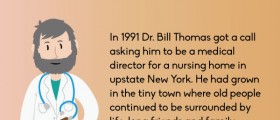
Many people in the world suffer from what we know as passive aggressive personality disorder. Namely, passive aggressive people are not verbally aggressive, nor do they actively express their resentment and hostile nature. Rather, they show these traits covertly or passively. For example, a passive aggressive friend will act happy when you ask him/her to do you a favor. They will ensure you that there will be no problems regarding the matter. However, when the time for the favor is due, they will not do it, acting strange and avoiding to talk about the topic. Therefore, these people do other people harm, hiding behind a visage of kindness and pleasantry. Usually, passive aggressive behavior evolves into pure, verbal and physical aggressiveness in time. So, it is important to notice the symptoms of this disorder in a person, so that you may help him/her timely.
Signs of Passive Aggressive Behavior
Strange, ill humor is one of the main signs of early passive aggressive behavior. Also, forgetting responsibilities and promises so that one may avoid them is also a sign if this behavioral phenomenon. Opposing to wishes and desires of others, feeling inferior in comparison to others and complaining about it all the time, being stubborn and prone to procrastination, commonly mixing anger and apparent satisfaction and not being efficient in jobs done are all signs of passive aggressive behavior too.
Passive aggressive people tend to keep their promises once it is too late, or appear to be keeping them, actually being useless and fruitless. Finally, they might sabotage the job they need to perform, only to channel their resentment and anger this way.
Dealing with Passive Aggressive Behavior
Even though medications may treat this disorder and suppress its symptoms, drugs are known to cause numerous side-effects and are therefore considered to be the last resort. Before medications are necessary, a passive aggressive person is advised to undergo counseling and cognitive behavioral therapy. Through these treatments, troubled individuals will be capable of expressing their feelings, pinpoint their problems, and work on helping themselves. Letting it all out is an important part of the process, since passive aggressive behavior is all about secrecy and covert channeling of inner frustrations.
Basically, passive aggressive behavior is considered to be a chronic condition and no one can help a person suffering from it unless he/she decides to help him/herself. There is a way out, but the troubled person needs to want the change to happen. Passive aggressive life is a life full of resentment and dissatisfaction. Therefore, treatment and recovery is highly recommended.

















Your thoughts on this
Loading...